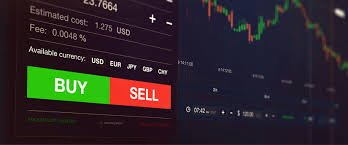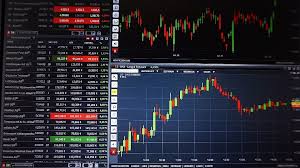
What is Forex Trading?
Forex trading, also known as foreign exchange trading, involves the buying and selling of currencies in the foreign exchange market. It is the largest financial market in the world, with an average daily trading volume exceeding $6 trillion. Traders seek to profit from fluctuations in currency exchange rates, which can be influenced by various factors, including economic indicators, geopolitical events, and market sentiment. To learn more, you can visit what is forex trading https://acev.io/.
The Basics of Forex Trading
At its core, forex trading is the process of exchanging one currency for another. Currencies are traded in pairs, such as EUR/USD (Euro/US Dollar) or GBP/JPY (British Pound/Japanese Yen). When you buy a currency pair, you are purchasing the first currency (base currency) while simultaneously selling the second currency (quote currency). For instance, if you believe the Euro will strengthen against the Dollar, you would buy the EUR/USD pair.
Each currency pair has its own value, which fluctuates continuously throughout the trading day. Traders use various techniques and tools to analyze market trends and predict future price movements. The forex market operates 24 hours a day, five days a week, allowing traders to participate at any time that suits their schedule.
How Forex Trading Works
Forex trading is conducted over-the-counter (OTC) through a network of banks, brokers, and financial institutions. Unlike stock markets, where trading occurs on centralized exchanges, forex trading takes place directly between participants via electronic communication networks (ECNs) or over the phone.
To start trading, you need to open a trading account with a forex broker. Brokers provide access to the forex market and offer trading platforms for executing trades. They may charge a commission or spread for their services, which is the difference between the buying and selling prices of currency pairs.
Traders can choose between two main types of trading accounts: standard accounts, which require a larger initial deposit, and mini or micro accounts, which allow for smaller investments. Moreover, many brokers offer leverage, which enables traders to control larger positions with a relatively small amount of capital. While leverage can amplify profits, it also increases the risk of significant losses.

Advantages of Forex Trading
Forex trading offers several advantages that attract traders from all walks of life:
- High Liquidity: The forex market is highly liquid, meaning that there are many buyers and sellers at any given time. This allows traders to enter and exit positions quickly, minimizing slippage and ensuring better price execution.
- 24/5 Market Hours: The forex market operates 24 hours a day during weekdays, providing traders with flexibility and the ability to trade at their own convenience.
- Accessibility: With the rise of online trading platforms, anyone with internet access can engage in forex trading. Many brokers offer demo accounts, allowing beginners to practice and develop their trading skills without risking real money.
- Potential for High Returns: Due to the use of leverage, traders can potentially achieve high returns on their investments. This attracts many individuals looking to make a profit in a short period.
Risks Associated with Forex Trading
While forex trading has its advantages, it is also associated with significant risks:
- Leverage Risk: While leverage can increase profits, it can also magnify losses. Traders can lose more than their initial investment if they are not careful with position sizing and risk management.
- Market Volatility: Currency prices can fluctuate rapidly due to various factors, including economic events, political instability, and natural disasters. This volatility can result in sudden losses
- Lack of Regulation: The forex market is decentralized and not regulated in the same way as other financial markets. This can lead to the risk of fraud and scams, especially for inexperienced traders.
- Emotional Trading: The psychological aspect of trading can significantly impact a trader’s decision-making process. Fear and greed can cloud judgment, leading to impulsive decisions and losses.
Key Strategies for Success in Forex Trading
To succeed in forex trading, traders should employ specific strategies and techniques. Here are a few popular approaches:
- Technical Analysis: Many traders use charts and technical indicators to analyze price movements and identify potential entry and exit points. This analysis typically involves studying historical price patterns and using tools like moving averages, RSI, and MACD.
- Fundamental Analysis: This approach involves analyzing economic indicators, news events, and other relevant data to determine the overall health of an economy. Traders can use this information to predict currency movements based on the strength or weakness of a nation’s economic outlook.
- Risk Management: Successful traders prioritize risk management to protect their capital. Setting stop-loss orders, diversifying their portfolio, and only risking a small percentage of their account on each trade are common risk management techniques.
- Continuous Learning: The forex market is constantly evolving, and traders must stay informed about market trends, news events, and trading strategies. Continuous education through online courses, webinars, and reading trading literature is essential for long-term success.
Conclusion
Forex trading can be an exciting and potentially profitable venture for individuals willing to learn and adapt to market conditions. While it offers many advantages, such as high liquidity and 24/5 trading hours, it also comes with risks that traders must acknowledge and manage. By employing effective strategies, practicing risk management, and remaining disciplined, traders can navigate the complexities of the forex market and increase their chances of success. Whether you are a newcomer or an experienced trader, understanding the fundamentals of forex trading is essential for achieving your trading goals.

